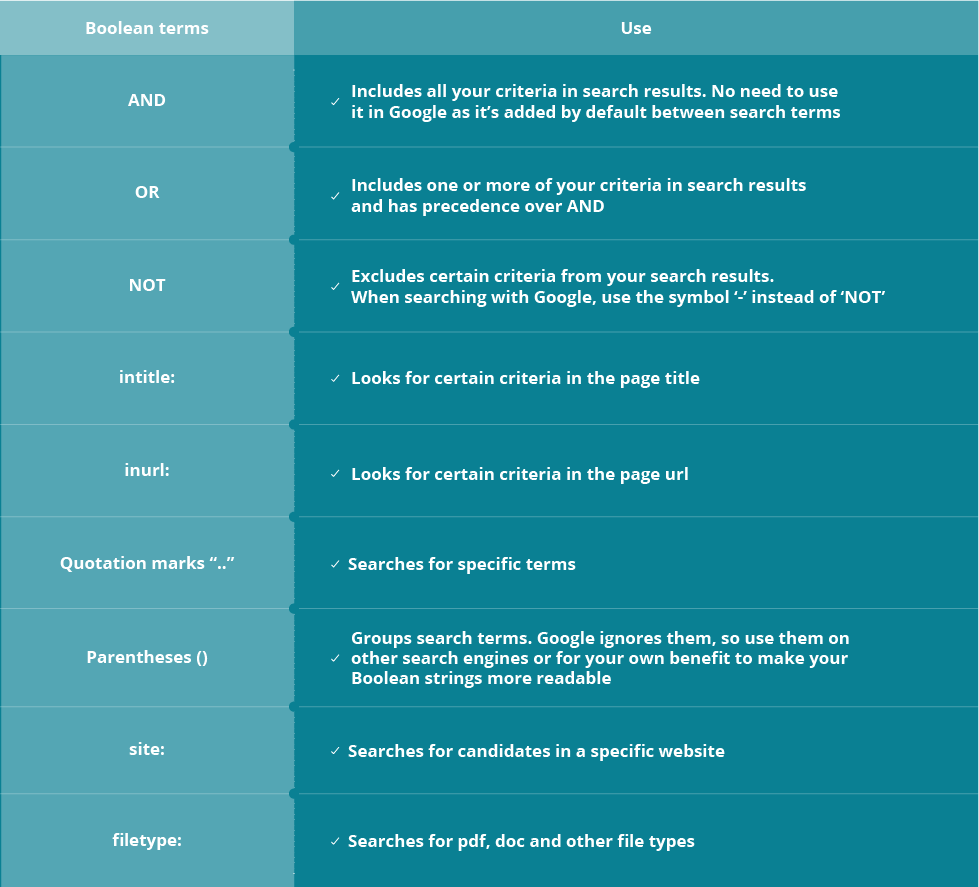
While common sense makes this search seem easy, this is a situation where uncommon sense is employed. He approaches a savvy recruiter who heads to the Internet. Say the head of an ad agency wants to create such a position to head the creation of a new digital department.
#Top 25 boolean search strings how to#
A skilled recruiter knows how to find ancillary words to obvious search terms that carve out and highlight paths to the candidates’ information.Īs an example, let’s look at our Project Manager search. Here is where skill and ingenuity in choosing the right combination of words for the Boolean search come into play. How do recruitment agencies source those people? But what about those passive candidates out there who aren’t searching for their next job opportunity? Their contact information isn’t neatly attached to a list of their qualifications searchable online. Searching for a Project Manager in a sea of resumes where those keywords abound can result in thousands of hits.
#Top 25 boolean search strings full#
Sites like, , and are full of resumes with searchable terms regarding the positions they are looking for.

Recruiting agencies use this technique to find the best and brightest candidates for positions.Īctive candidates for jobs are low hanging fruit for recruiters. While this might be as second nature as finding an Arby’s in your hometown of Arlington, TX or a solution for “poison ivy” and “toddler,” Boolean searches can be fine-tuned as sharp search devices. Likewise, in modern non-mathematical use, keeping phrases together with quotation marks adds to the specificity. Thus, when you put the words “and” or “near” or “or” in a search engine along with keywords, you are effectively using Boolean Logic-and conducting a Boolean search. Math and logic put into plain English, “Boolean Logic” is the process of combining certain concepts and excluding others when searching databases. So how do we get from algebra to Google? And more importantly, how do Boolean searches enable recruiters to find the best candidates both active and passive? He is best known for authoring The Laws of Thought. In the late 19 th Century, George Boole, English mathematician, philosopher, and logician, made significant strides and discoveries in the fields of differential equations and algebraic logic.

Likewise, since the mid-1990’s, many of us use Boolean searches daily to find information on the Internet and have no idea that something so mundane has deep mathematic roots. Most of us know it applies to a search technique but we don’t have any idea how.


 0 kommentar(er)
0 kommentar(er)
